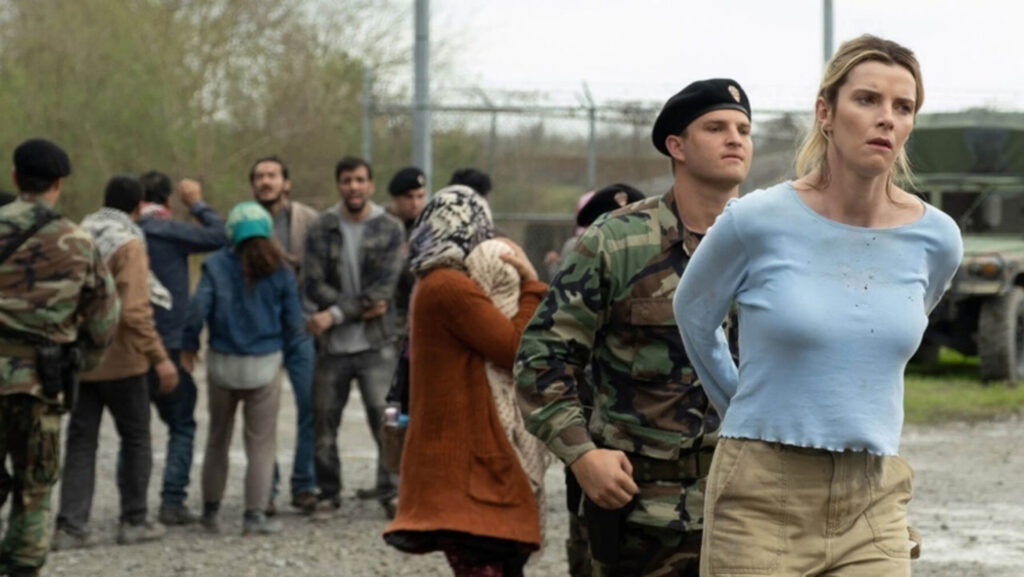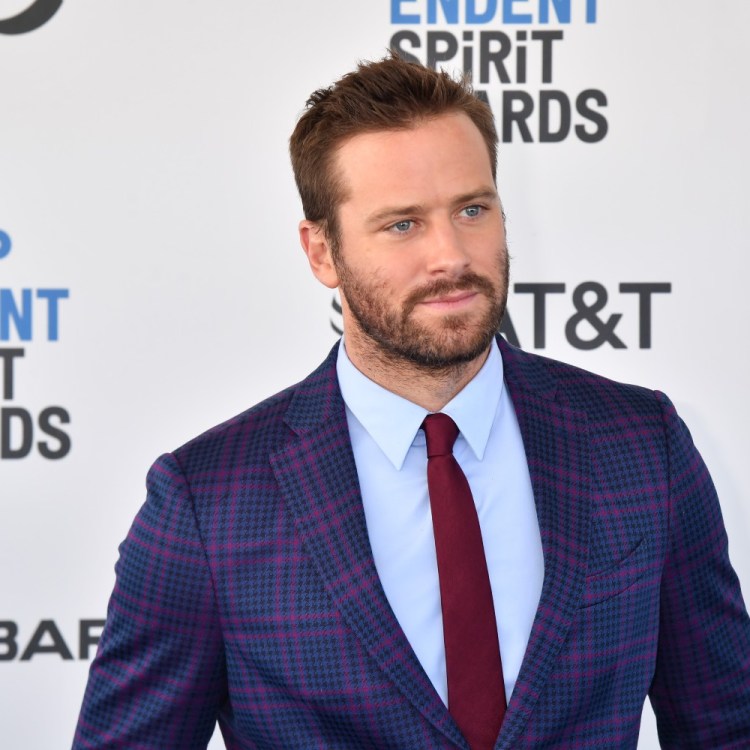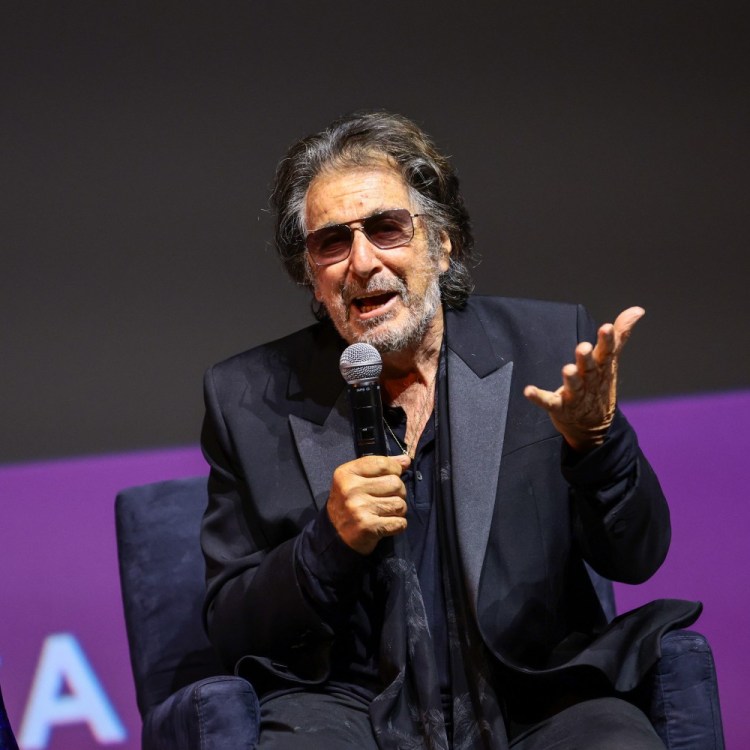There’s no such thing as bad publicity in Hollywood, not even when the President of the United States has formally denounced your new movie.
Craig Zobel’s horror picture The Hunt was slated to get a wide theatrical run on September 27 of last year, until it landed in the middle of a controversy following public shootings in El Paso on August 3 and Dayton one day later. At the time, however, the true nature of this kerfuffle was unclear. Everyone calling for the film’s postponement seemed to agree that the trouble pertained to the premise cooked up by writers Damon Lindelof and Nick Cuse, which had been detailed in an item at The Hollywood Reporter as involving “liberal elites” hunting down and killing “deplorables” from middle America for sport. Some made the blanket declaration that any images of people gleefully firing on one another with semi-automatic weaponry would be too raw, too soon. Others made more pointed objections, expressing a distaste at the partisan characterizations. Curiously enough, those all came from Republicans offended at being cast as victims, and not from Democrats offended at being cast as murderers.
No matter that nobody in the media or general public had actually seen the finished product — whether due to the violence itself or the dynamic of how it would play out, the self-billed satire had landed in the hot seat. The back-and-forth culminated with President Trump himself sounding off in his inimitable cadence of confused yet emphatic bluster.
The release was delayed the next day until further notice, which finally came last month as Universal unveiled a new debut date of March 13 and a fresh ad campaign capitalizing on the uproar generated by the temporary cancelation. While following through and gaining new information may not be the President’s strong suits, he’d have most likely been pleased if he’d taken the time to watch the film he claimed had been “made in order to inflame and cause chaos.” He’d learn that it’s all been much ado about a loud, gory nothing.
As the whole teapot-tempest raged on, I wondered why right-wingers had taken issue with a movie that appeared to portray their ilk as the good guys and their ideological opponents as cold-blooded sadists. Turns out that that inkling was right on the money; Universal allowed the press a peek at The Hunt last week, and it’s exactly what the trailer sold it as. A viewer can spend the whole film waiting for a twist that never comes, as a relatively by-the-book reworking of The Most Dangerous Game plays out in front of them. But the devil hides in the details, and in this case, the particulars of Lindelof and Cuse’s script render this attempt at provocation both more aggravating and less outrage-worthy than it ever was in the abstract.
The film pushes every button it possibly can, treating the very act of button-pushing like a game of Wac-a-Mole with new buzzwords popping up every other second. A damning group text sets the plot in motion, as high-powered CEO Athena (Hilary Swank) chats with some of her one-percenter pals about the latest tweet from the “ratfucker-in-chief.” There’s an offhanded joke about a conspiracy theory known as “ManorGate” — the whole rich-hunting-the-poor thing — that, when leaked by a hacker, gets them all publicly canceled. She and her cohort decide that if they’ve already been dealt the consequences for something they were only kidding about doing, why not go through with it? And just like that, we’re off to the races, the film’s first noxious moral being that in the game of political discourse, everyone sinks to whatever low level they’re accused of inhabiting.
That cynical stance, articulated elsewhere as a combination of both-sides-ism and no-sides-ism, gets affirmed again and again over the course of a film that believes in nothing aside from its own sense of superiority. There’s no potshot too easy for Lindelof and Cuse to take; the array of Republicans includes an Alex Jones stand-in (Ethan Suplee) who rails against “globalist cucks” on his wake-up-sheeple podcast, a bleached-blonde Ugg boot-wearer named “Yoga Pants” (Emma Roberts) and meth-country hayseed Crystal (Betty Gilpin). The predators do things conservatives have heard that liberals do, like talk about NPR and use the term “microaggression” and insist that global warming is indeed real.
From the jump, a critical-eyed viewer can start to see the film’s writers rigging the game in their own jaded favor. When it turns out that Crystal has been confused for her hometown’s other Crystal, and that she’s more of a G.I. Jane type than the Hillbilly Elegy castoff her kidnappers thought her to be, the message is clear. Don’t judge the Mississippian book by its cover, sure, but who’s making the judgements in the first place?
Deeper into their mission of survival, Crystal and faux-Alex Jones make it into a vacant freight car, where they encounter a brown-skinned refugee family of indeterminate origin. Crystal has nothing against them, but her companion immediately insists they’re part of the game, because they’re “crisis actors,” because there’s no such thing as refugees. His wingnut bigotry would be his own undoing, if not for the reveal that one of the ‘elite’ gunners really has hidden out in the immigrants’ ranks. The scene concludes with a detonating grenade that blows whatever point the screenwriters thought they were making straight to hell.
Crystal’s warpath ends at the stately mansion Athena has made her headquarters for the duration of their demented safari. As part of their effete military roleplay, the hunters codename their prey, with Crystal having been dubbed “Snowball.” The significance of this moniker gets spelled out for everyone’s benefit, as Athena condescendingly richsplains Animal Farm. Except that Crystal then turns the tables by revealing that she has in fact read Orwell, and so she knows that Snowball’s the good guy. Athena has been cowed, and ostensibly, the audience’s pre-conceptions have been set straight. But again, the audience has been forced into these incredibly broad assumptions by the film, setting up its own straw men so that it may sagely knock them down. The film has been littered with little incidents like this, in which only the worst among us could possibly stand to learn the simplest lessons.
Zobel and the screenwriters flatten politics into two equally undesirable poles, then play wise by taking a vantage point of smug detachment. This is the nihilistic shell game of South Park, accentuating the negative until completely disengaging becomes the only reasonable move. It is a non-position in the guise of a position, far more facile and comfortable than any stand truly worth taking. The nobility of withdrawing in disgust, once the ideal of the ‘90s, has curdled into something lazier and more base. Placing yourself above the muck of the two-party system only works when there’s a higher principle to which you can aspire. The Hunt takes the low road, where the only acceptable form of government is bloodlust. In rejecting everything, it risks nothing.
This article was featured in the InsideHook newsletter. Sign up now.
























